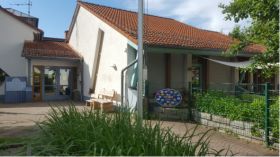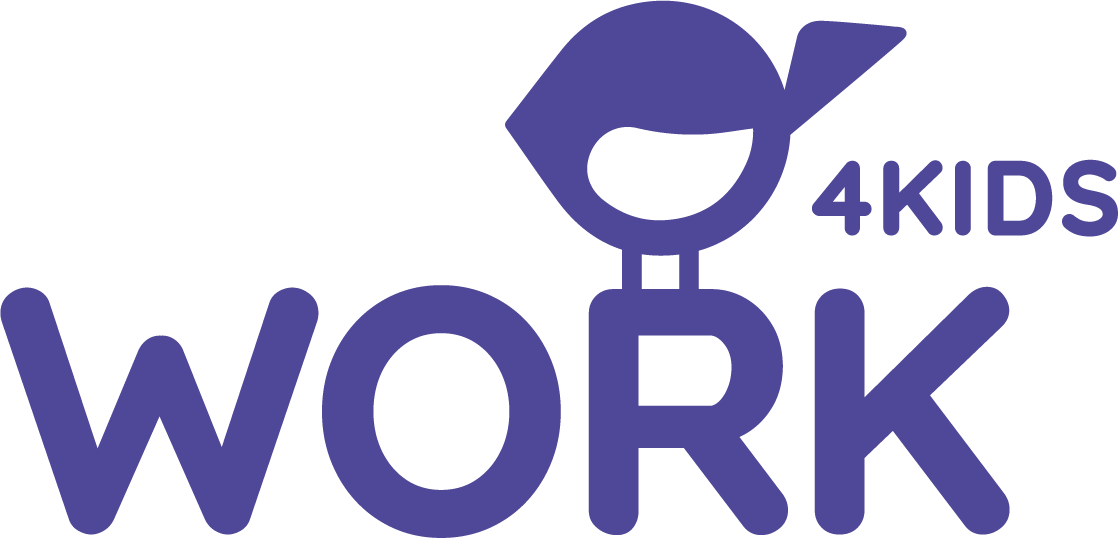Grundlagen
Eingewöhnung: Wir lassen Ihrem Kind Zeit anzukommen!
Die Eingewöhnung ist für einen guten Start in das Kindergartenleben ihres Kindes sehr wichtig. Durch die Eingewöhnung lernt Ihr Kind sich an die neue Umgebung zu gewöhnen und neue Beziehungen zu den Bezugserzieher*Innen und den anderen Kindern aufzubauen. Das Ziel der Eingewöhnung ist, dass sich die Beziehung zwischen Kind und Erzieher*Innen gefestigt hat, damit es ohne Elternteil in der Einrichtung bleibt und die Erzieher*Innen Ihr Kind trösten und beruhigen können. Ihr Kind erhält die Sicherheit, die es sonst von einem Elternteil bekommt, nun von der Erzieher*Innen.
Uns ist es sehr wichtig, dass wir Sie als Elternteil und Ihr Kind in dieser Phase individuell begleiten. Eine Eingewöhnung ist immer individuell von jedem Kind abhängig und verläuft nie gleich. Deshalb ist es uns Erzieher*Innen wichtig in einem engen Austausch mit Ihnen zu stehen. Um Ihre Ängste und Sorgen zu wissen und Sie richtig unterstützen zu können teilen Sie uns diese bitte mit.
In der Villa Konfetti gewöhnen wir angelehnt an das Berliner Modell Ihr Kind ein. Zur kurzen Erklärung: das Berliner Modell teilt die Eingewöhnung in 6 Schritte ein. Diese sind 1. rechtzeitige Infos an die Eltern, 2. die dreitägige Grundphase, 3. die ersten Trennungsversuche, 4. die Stabilisierungsphase, 5. die Schluss Phase und 6. der Anschluss der Eingewöhnung.
Bildungs- und Erziehungspartnerschaft: gemeinsam für starke Kinder
Eine gute Zusammenarbeit zwischen Eltern und Kita gehört zu den Grundlagen einer qualitativ hochwertigen pädagogischen Arbeit. Die Eltern sind unsere wichtigsten Kooperationspartner. Für eine gute Zusammenarbeit benötigen wir gegenseitiges Vertrauen, Akzeptanz, Toleranz und Wertschätzung. Dies kann nur durch beständigen Austausch entstehen. Bei Bring- und Abholsituationen entstehen oft Tür- und Angelgespräche. Bei solchen Gesprächen erhalten Eltern einen aktuellen Einblick in den Kita-Alltag und Erzieher* Informationen über Vorkommnisse von daheim. So wächst das gegenseitige Vertrauen und eine Zusammenarbeit zu Gunsten des Kindes kann entstehen.
Neben den Tür- und Angelgesprächen finden einmal jährlich Entwicklungsgespräche statt. In solchen Entwicklungsgesprächen werden der Entwicklungsstand des Kindes, Beobachtungen im Alltag und aktuelle Themen besprochen.
Eine weitere Möglichkeit, um Informationen und Organisatorisches auszutauschen, sind Elternabende. In unserer Einrichtung finden diese zwei? Mal im Kindergartenjahr statt.
Sie dienen nicht nur dem Austausch zwischen Erziehern und Eltern, sondern auch den Eltern untereinander.
Wir informieren täglich über Aktivitäten an „Pinnwänden“ der jeweiligen Gruppentüren. So bekommen die Eltern regelmäßig einen kleinen Einblick, was die Kinder in der Gruppenzeit gemacht haben. Nur durch einen ständigen Austausch von Informationen, können wir gemeinsam für das Wohlergehen der Kinder Sorgen.
Pädagogische Schwerpunkte: Wir machen aus jeder Situation das Schönste!
Die pädagogischen Schwerpunkte orientieren sich an den Entwicklungsbereichen der Kinder. Jedes Kind hat unterschiedliche Ressourcen und daher auch einen unterschiedlichen Entwicklungsstand in den verschiedenen Bereichen. Wir sehen es als unsere Aufgabe, jedem Kind die Möglichkeit zu geben, seine Talente zu entfalten und es bei Defiziten im Rahmen seiner Möglichkeiten zu fördern
Selbständigkeit und Selbstbewusstsein
… sind uns sehr wichtig. Wir unterstützen die Kinder, wann immer sie es benötigen, lassen ihnen aber auch den Freiraum, ihre Fähigkeiten einzusetzen. Egal ob es darum geht, die Vollversammlung zu leiten und frei vor einer Gruppe zu sprechen oder ganz alltägliche Dinge wie das Anziehen, überall bietet sich Gelegenheit, die Selbständigkeit zu fördern und das Kind zu eigenen Lösungswegen zu ermutigen
Nur ein Mensch, der sich selbst zu helfen weiß, kann auch selbstbewusst sein.
Resilienz
… bedeutet psychologische Widerstandskraft. Die Entwicklung der Resilienz ist besonders wichtig, um Kinder stark gegen Stress, Ausnahmesituationen und Belastungen zu machen.
Manch einem ist die Resilienz in die Wiege gelegt, aber jeder kann sie „trainieren“. In unserer Kita geschieht das in kleinen Alltagssituationen, z.B. wird das Kind dabei unterstützt, Stresssituationen zu bewältigen oder ohne Frust auch mal ein Spiel zu verlieren oder in einem Rollenspiel einem anderen Kind die Regie zu überlassen.
Resilienz ist eine Kernkompetenz für Schulkinder und wichtiger als die meisten anderen Entwicklungsbereiche.
Sozial-Emotionale Entwicklung
Das soziale Miteinander ist ein Grundbedürfnis jedes Menschen. Jeder kann etwas zum Gelingen einer Gemeinschaft beitragen. Teamgeist, Rücksichtnahme, aber auch Durchsetzungsvermögen, zuhören, aber sich auch ausdrücken können, das Verinnerlichen und Umsetzen von Werten und Regeln - all das und vieles mehr gehört zu einem guten Miteinander dazu. Vieles davon erlernen Kinder im Kita-Alltag, quasi „learning by doing“.
Gerade in diesem Entwicklungsbereich hat sich in den letzten Jahren vieles geändert. Werte und Regeln scheinen oft nicht mehr eindeutig, auch Kinder sind stärkeren emotionalen Belastungen ausgesetzt als früher und Aggressionen kommen wesentlich häufiger vor. Daher hat das Team der Villa Konfetti eine Fortbildung des Präventionsprogramms „Faustlos“ absolviert. Der Begriff „Faustlos“ steht sinnbildlich für einen gewaltfreien Umgang bei Konflikten und in emotional schwierigen Situationen. Ziel des Programms ist neben dem Unterlassen von körperlicher Gewalt auch auf verbaler Ebene fair miteinander umzugehen.
Sprache
… ist der Schlüssel zur Welt . Eine gut entwickelte Sprache ist wichtig für die Kommunikation, soziale Kontakte und Erfolg in Bildung und Beruf. Wir fördern die Sprache auf verschiedenen Ebenen, wie Vorlesen, Erzählrunden, Singen und Reimen , Fingerspielen uvm.
Zur Zeit haben wir Kinder und Betreuer aus vielen verschiedenen Nationen und sprechen zehn verschiedene Sprachen im Haus. Interesse und Akzeptanz für unterschiedliche Sprachen und Kulturen sind daher eine Grundlage für unsere Pädagogik.
Zunächst sollte die Muttersprache gut gefestigt werden. Spätestens in der Kita kommt dann die Zweitsprache Deutsch hinzu, die selbstverständlich wichtig ist, um sich sicher in unserer Gesellschaft zu bewegen.
Für Kinder, die im Bereich Sprache noch Entwicklungspotenzial haben, bieten wir einmal wöchentlich Sprachförderung an, abgesehen von den Vorschulkindern, die am Vorlaufkurs der Schule teilnehmen.
Im Alter von vier bis viereinhalb Jahren führt eine zertifizierte Fachkraft ein vom Land Hessen initiertes Sprachscreening durch, um Sprachentwicklung und Kommunikationsverhalten besser einzuschätzen und ggfs. fördern zu können. Selbstverständlich wird vorher das schriftliche Einverständnis der Erziehungsberechtigten eingeholt.
Kreativität
… hat viele Facetten. Kinder können sich bei uns auf unterschiedlichsten Eben kreativ entfalten: Malen, Basteln, Singen, Tanzen, Rollenspiel und vieles mehr gehört zu unserem pädagogischen Alltag. Dabei relevant ist nicht Perfektion, sondern die Individualität jedes Kindes und die Freude daran, selbst etwas zu erschaffen. Wir sehen Kreativität als eine Ausdrucksform für die Gefühle, Gedanken, Ideenreichtum, Persönlichkeit und Fantasie jedes Kindes.
„Kreative Werke von Kindern sollten nicht nach schön oder nicht schön beurteilt, sondern als individueller Ausdruck des entsprechenden Kindes gesehen werden.“ (Verfasser unbekannt)
Musik
… ist die Sprache der Seele. Mal abgesehen davon, dass Singen, Rhythmik und der Umgang mit Instrumenten jedem Kind Freude bereitet, fördert Musik auch viele Entwicklungsbereiche, z.B. die Sprachentwicklung, das mathematische Denken, das Gedächtnis etc.
In der Villa Konfetti singen wir in der Gruppenzeit die Lieder, die zu unserem jeweiligen Thema passen und natürlich Bewegungslieder.
Einmal in der Woche singen alle Kinder gemeinsam, je nach Jahreszeit in der Turnhalle oder auch draußen. Wir singen sowohl traditionelles Liedgut als auch neue Lieder.
Einmal in der Woche ist für besonders interessierte Kinder eine Rhythmik- und Liederstunde eingeplant, bei der auch unter anderem das Orff’sche Instrumentarium zum Einsatz kommt.
Grob- und Feinmotorik
Die Feinmotorik bezieht sich auf Vorgänge wie Hand-Fingerkoordination, Gesichts- und Mundmotorik, und wird durch Kneten, Basteln, Fingerspiele etc. gefördert.
Die Grobmotorik befasst sich mit den Gesamtbewegungen des menschlichen Körpers. (Bewegung -> siehe „Gesunde Kita“)
Wahrnehmung
… ist das Erleben der Umwelt und sich selbst mit allen Sinnen, Die Sinne sind das Fenster zur Welt und müssen sich entwickeln können. Die Villa Konfetti bietet ein anregendes Umfeld für alle Sinne.
Besonders unser Snoezel-Raum im Obergeschoss lädt zum Sehen, Hören, Träumen, Fühlen und Riechen ein.
Logisch-mathematisches Denken
… klingt viel komplizierter als es ist. Wir gestalten unseren Alltag so, dass die Fähigkeit zu logischem Denken und mathematische Grundlagen quasi nebenbei entwickelt werden. Würfelspiele, Rätsel, Rhythmik, Zähl- und Sortierspiele sorgen für ein anregungsreiches Angebot, mit dem jedes Kind mit Freude und Interesse seinen Zugang in die Welt.




